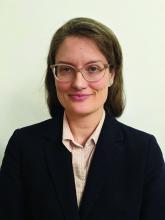“Allie” is a 16-year-old African American female, presenting to her primary care provider for a routine well-child visit. She gets straight As in school, has a boyfriend, and works as a lifeguard. She is always on her phone using Snapchat, TikTok, and Instagram. Over the past year, it’s been taking her longer to turn off the phone and electronics at night. She needs to close the apps one by one and check the power sources a number of times. In the past few months, this ritual has become longer, includes more checks, and is interfering with sleep. She reports knowing this is abnormal and thinking she is “just kind of crazy” but she cannot stop. Her parents reassure her each evening. They now help her doublecheck that her devices are plugged in at least twice.
Unlike its depiction in the movies, many symptoms of obsessive-compulsive disorder (OCD) happen internally. Often patients are aware that these are “not normal” and cover up their experiences. It can be hard for treaters to learn about these challenges. Children spend years suffering from OCD and even regularly attend nonspecific therapy without being diagnosed. However,
OCD impacts 2.3% of the population in their lifetime but more than 28% of people report symptoms consistent with OCD traits.1 OCD symptoms have increased since the pandemic2 so it is showing up in primary care more frequently. Younger patients meet criteria when their symptoms on the Children’s Yale-Brown Obsessive Compulsive Scale (CY-BOCS) are sufficiently present, and impact the ability to function. The youngest patients with OCD are more likely to be male1 and children are most likely to be identified between ages 8-12 and during the later teenage years,3 although symptoms can occur at any time in life.
Usually, symptom onset happens gradually and then waxes and wanes. Often OCD has been present over months to years but not identified until they reach a functional tipping point. Alternatively, symptoms caused by PANDAS/PANS occur out of the blue and should be treated according to infectious disease/autoimmune workup protocols. Other differential diagnosis for OCD include other anxiety disorders, mood disorders, eating disorders, psychotic disorders, and other compulsive behaviors. OCD, tics, and ADHD are a combination seen more frequently in younger patients.4 Comorbidities frequently occur, including anxiety disorders, mood disorders, impulse control disorders, and substance use disorders.1 PTSD frequently presents with comorbid OCD symptoms.1 Finding the underlying cause is key to effective treatment.
How do I identify OCD in primary care?
Administer the CY-BOCS if these symptoms cause inability to function. The cut off for moderate symptoms is a score of 16 or above. Like all mental health screening, clinical judgment should be used to interpret the score. Many therapists do not screen for OCD.


